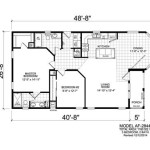How Much Does It Cost to Move a 2-Bedroom Apartment?
Moving a 2-bedroom apartment involves various costs, and understanding these expenses is crucial for effective budgeting and planning. The overall cost can fluctuate significantly based on several factors, including the distance of the move, the amount of belongings, the services required, and the time of year. This article explores the different cost components of moving a 2-bedroom apartment, providing a detailed breakdown to help anticipate potential expenses.
Factors Influencing the Cost of Moving
Several key variables influence the total expense of relocating a 2-bedroom apartment. These elements directly impact the quotes received from moving companies and the overall cost of a DIY move. Understanding these factors allows for making informed decisions to optimize the moving budget.
Distance: The distance between the origin and destination is a primary determinant of the moving cost. Local moves, generally within the same city or metropolitan area, are typically charged hourly. Conversely, long-distance moves, spanning across state lines or significant geographic regions, are typically based on the weight of the belongings and the distance traveled. Fuel costs, driver salaries, and potential overnight accommodations contribute to the overall expense of long-distance relocations.
Volume of Belongings: The quantity and weight of possessions being moved directly affect the price. Moving companies often use cubic feet to estimate the space required in the moving truck. More belongings necessitate a larger truck and potentially more movers, leading to higher labor costs. It is advantageous to declutter before the move, reducing the volume of items and subsequently lowering the moving cost.
Moving Services Required: The level of service desired significantly impacts the moving cost. Full-service moving companies offer comprehensive assistance, including packing, loading, transportation, unloading, and unpacking. These services provide convenience but come at a premium. Alternatively, opting for a partial service approach, where the individual handles packing and unpacking, can reduce costs. Additional services such as disassembling and reassembling furniture, specialty item handling (e.g., pianos, artwork), and storage solutions can further increase the overall expense.
Time of Year: The timing of the move can significantly impact the cost. Moving companies typically experience higher demand during peak seasons, such as summer (June-August) and the end of the month. Increased demand leads to higher prices due to limited availability of trucks and movers. Moving during the off-season (fall and winter) often results in lower rates and greater flexibility in scheduling. Weekday moves are generally less expensive than weekend moves due to lower demand.
Packing Supplies: The cost of packing supplies can add up quickly, particularly if using professional-grade materials. Boxes of various sizes, packing tape, bubble wrap, packing paper, and furniture blankets are essential for protecting belongings during transit. Sourcing free or discounted packing materials can help minimize this expense. Consider repurposing used boxes from local businesses or purchasing supplies in bulk.
Insurance Coverage: Moving companies are legally required to provide basic valuation coverage, typically at a rate of $0.60 per pound per article. This basic coverage offers minimal protection in case of damage or loss. Purchasing supplemental insurance, such as full-value protection, provides more comprehensive coverage but increases the overall cost. Assessing the value of belongings and determining the appropriate level of insurance coverage is essential for mitigating potential financial losses.
Accessibility: The ease of access to both the origin and destination addresses can influence the moving cost. Factors such as stairs, elevators, narrow hallways, and long walking distances from the truck to the apartment can increase labor time and require specialized equipment, such as dollies or ramps. Some moving companies may charge extra for navigating these challenging conditions.
Cost Components of a 2-Bedroom Apartment Move
Breaking down the cost components provides a clearer understanding of where the moving budget is allocated. This allows for identifying areas where costs can potentially be reduced.
Labor Costs: Labor is a significant portion of the overall moving cost, especially for hourly-based local moves. The number of movers required and the hourly rate directly impact the total labor expense. Moving companies typically charge an hourly rate per mover, and the total labor cost is calculated based on the number of hours worked. Factors such as the complexity of the move, the volume of belongings, and the accessibility of the locations can influence the duration of the move and the associated labor costs.
Transportation Costs: Transportation costs encompass the expenses associated with transporting belongings from the origin to the destination. For local moves, these costs may be included in the hourly rate. For long-distance moves, transportation costs are typically based on the weight of the belongings and the distance traveled. Fuel surcharges, tolls, and other transportation-related fees may also be included. Obtaining multiple quotes from different moving companies allows for comparing transportation costs and selecting the most cost-effective option.
Packing Costs: Packing costs include the expenses associated with packing materials and labor, if using professional packing services. The cost of packing materials can vary depending on the quantity and type of materials needed. Professional packing services typically charge an hourly rate per packer. Packing services offer convenience but can significantly increase the overall moving cost. Alternatively, self-packing can save money but requires time and effort. Properly packing belongings is crucial for protecting them during transit and preventing damage.
Storage Costs: If temporary storage is needed during the move, storage costs will be incurred. Storage facilities charge monthly rates based on the size of the storage unit required. The cost of storage can vary depending on the location, amenities, and security features of the storage facility. Considering storage options and associated costs is essential for budgeting purposes. Be aware that moving companies may offer storage solutions, but it's often more economical to explore independent storage facilities.
Insurance Costs: Insurance costs cover the expense of purchasing supplemental insurance coverage beyond the basic valuation coverage provided by the moving company. The cost of insurance depends on the level of coverage desired and the value of the belongings. Assessing the value of belongings and determining the appropriate level of insurance coverage is crucial for mitigating potential financial losses in case of damage or loss during the move. Consider the deductible amounts associated with the insurance policies.
Additional Fees: Various additional fees may be charged by moving companies, depending on the specific circumstances of the move. These fees may include charges for stairs, elevators, long carries, specialty items, and fuel surcharges. Obtaining a detailed estimate from the moving company that clearly outlines all potential fees is essential for avoiding unexpected charges. Inquire about any hidden or additional fees before finalizing the moving contract.
Estimating the Cost of a 2-Bedroom Apartment Move
While the precise cost can vary, understanding average price ranges provides a framework for budgeting. These estimations are based on general industry data and should be used as a starting point for obtaining personalized quotes.
Local Move (Within 50 Miles): For a local move of a 2-bedroom apartment, the cost typically ranges from $400 to $1,500. This estimate assumes that the move can be completed within a few hours and requires two to four movers. The hourly rate for movers typically ranges from $75 to $150 per mover. The total cost will depend on the number of hours worked, the number of movers required, and any additional fees for stairs, elevators, or long carries.
Long-Distance Move (Over 50 Miles): For a long-distance move of a 2-bedroom apartment, the cost typically ranges from $2,000 to $7,000 or more. This estimate assumes that the move spans across state lines or requires significant travel distance. The cost is primarily based on the weight of the belongings and the distance traveled. Moving companies typically charge per pound, and the rate can vary depending on the origin and destination locations. Additional factors such as fuel surcharges, tolls, and delivery fees can also contribute to the overall cost. Consider consolidating belongings to reduce weight and minimize transportation costs.
DIY Move: A DIY move involves renting a moving truck and handling all aspects of the move independently. The cost of a DIY move for a 2-bedroom apartment can range from $300 to $1,000 for a local move and $1,000 to $4,000 or more for a long-distance move. The primary expenses include truck rental fees, fuel costs, tolls, packing supplies, and optional moving equipment rentals, such as dollies and furniture pads. While a DIY move can save money on labor costs, it requires significant time, effort, and physical exertion. Consider recruiting friends or family members to assist with loading and unloading.
Additional Cost Considerations: Beyond the core moving expenses, several additional costs may arise, which should be factored into the overall budget. These include: new furniture, cleaning services, security deposits, utility connection fees, first and last month's rent, and travel expenses.
Obtaining quotes from multiple moving companies is crucial for comparing prices and services. Look for reputable moving companies with positive reviews and proper licensing and insurance. Read the fine print of the moving contract carefully to understand all terms and conditions. Consider using online moving cost calculators to obtain preliminary estimates. Be prepared to provide detailed information about belongings and moving requirements to receive accurate quotes.

How Much Do Moving Boxes Cost Tips Forrent

How Much Does It Cost To Move The Art Of Happy Moving

How Much Do Movers Cost For A 2 Bedroom Apartment

How Much Does It Cost To Move A 2 Bedroom Apartment

Pricing Guide Move Indy

How Much Does It Really Cost To Move A 2 Bedroom Apartment Local Long Distance Price Breakdown

How Much Does It Cost To Move A Two Bedroom Apartment

How Much Does It Cost To Move An Apartment In 2025

How Much Does It Cost To Move A Two 2 Bedroom Apartment Movers Com

How Long Does It Take To Move Quick Guide By Qshark Movers








